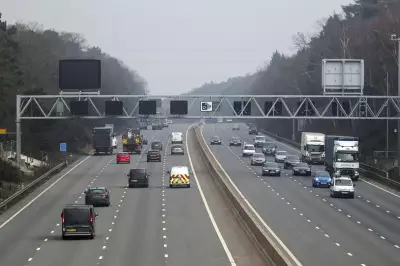
In a move set to send ripples through the UK housing market, Chancellor Rachel Reeves is reportedly drawing up ambitious plans for a sweeping overhaul of property taxation. The reforms, aimed squarely at wealth and asset ownership, could fundamentally change how Britons are taxed on their homes.
Beyond Tinkering: A System-Wide Rethink
Whitehall insiders suggest this isn't merely an adjustment of existing rates but a root-and-branch review of the entire structure. The current system, a patchwork of stamp duty land tax (SDLT) and the widely criticised council tax, is seen as outdated, unfair, and in desperate need of modernisation.
The Chancellor's focus appears to be on targeting accumulated housing wealth, a move that signals a significant shift in Treasury thinking towards asset-based taxation. This could have profound implications for long-term homeowners who have seen significant price appreciation.
The Fault Lines in the Current System
The push for change is driven by several glaring issues:
- Council Tax Inequity: Based on 1991 property values, it hits those in less expensive regions disproportionately harder.
- Stamp Duty Disincentives: SDLT is often blamed for gumming up the market, discouraging downsizing and reducing mobility.
- Wealth Disparity: The system currently does little to address the vast wealth locked in property, which has grown exponentially in recent decades.
What Could a New Property Tax Look Like?
While the Treasury remains tight-lipped on specifics, economists and policy experts are speculating on the potential models Reeves could consider. These might include a proportional property tax based on up-to-date market values, a new land value tax, or a broader annual wealth tax that includes residential property.
Such a change would be politically explosive. The term 'garden tax' is already being whispered in Westminster corridors, echoing past political attacks on property tax reforms. The Chancellor will have to navigate a minefield of potential backlash from homeowners, a key voter demographic.
The Long Road to Implementation
Even if announced in an upcoming budget, any fundamental reform would require a lengthy consultation process and likely a phased implementation over many years. The valuation alone of every property in the UK to create a fair and current baseline would be a monumental task for the Valuation Office Agency.
One thing is certain: Reeves' plans represent the most serious attempt in a generation to tackle the thorny issue of property wealth. The outcome could redefine not just the tax landscape, but the very nature of home ownership and wealth inequality in Britain for decades to come.





